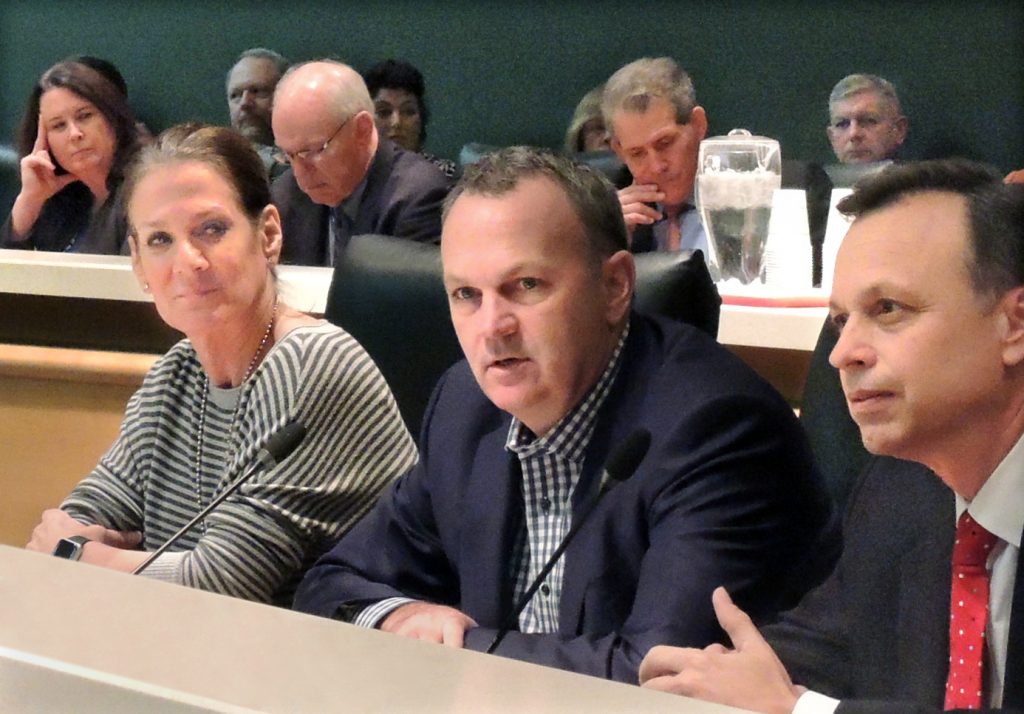Yesterday, Speaker-designate of the Florida House Richard Corcoran released the 2016 – 2018 proposed House Rules. The new rules push for more transparency and place more restrictions on lobbyists.
“It is time that government embodies the very highest of standards and serve citizens and not self,†said Corcoran. “The Florida House, in adopting these rules, will take a transformational leap into a new era of accountability, professionalism, transparency, and fairness.â€
Corcoran wants to establish a Public Integrity & Ethics Committee to provide an unprecedented level of scrutiny to ethics requirements. The committee will consider legislation and monitor matters relating to the conduct and ethics standards of Florida House members, state and local public officials, public employees, lobbyists and candidates for public office.
He said, “The Florida House will set the standard for others to emulate. And those who cannot live up to the highest ethical and professional standards will find the Florida House a difficult place to work or visit.â€
As we reported yesterday, the House Speaker-designate has included a rule regarding cities and counties spending taxpayers’ dollars to lobby their lawmakers:
Lobbyists who represent a public or semi-public taxpayer-supported entity, or their DSOs or foundations, will be required to disclose their lobbying contracts.
Why
– Taxpayer money being used to lobby the Legislature for more taxpayer money is a vicious cycle
- Taxpayers deserve to see the full contracts lobbyists receive so they can judge the propriety and competence of the elected officials voting on those contracts
Through public records requests, for which Inweekly paid over $300, we discovered that Mayor Ashton Hayward has spent over $450,000 on lobbying state and federal governments in his first six years in office.
Other new rules include:
All appropriations projects must be filed as stand-alone bills and made as non-recurring appropriations. If a House budget or conference report contains an appropriations project not filed as a House bill and/or is not made as a non- recurring appropriation, the entire bill or conference report is out- of-order.
Why
- Greater time and ease of public and press scrutiny
- Will save taxpayer money  Will require all new member projects to be justified each year
- New forms will provide substantial detail on each project to put all spending in the sunshine
- Previously, Members could slip millions of dollars into the budget at the last minute
Before being allowed to lobby the House on a specific issue, a lobbyist would be required to file an electronic notice of appearance that discloses they are lobbying on that specific issue

Why
– Unprecedented transparency
- Eliminates the mystery of who is lobbying what issue
- Gives the public easy and clear access to lobbyist activity
Members will not fly on private planes owned by lobbyists or principals even if they pay the commercial rate.
Why
– Ends a practice that creates an unacceptable level of influence
- Currently, Members may pay the commercial ticket cost to satisfy ethics requirements. That practice ends
Members must disclose new employment from any public entity that receives appropriations.
Why
– Public entities hiring legislators creates a perception of using taxpayer dollars to influence elected officials – — Disclosure will be public and accessible online
Members will be prohibited from entering into business deals or financial relationships with registered lobbyists or principles.

Why
– A financial relationship with someone tasked with influencing the legislative process is unacceptable
- Eliminates even the perception of undue influence or unethical financial relationships
Lobbyists may not lobby a Member via email, text message, or other form of electronic communication when the House is in session or the member is in a committee or subcommittee meeting.

Why
– Members will be free from undue influence during votes and debate
- Prohibits a practice that, if widely known to the public would engender justifiable outrage
State Rep. Clay Ingram, who is also the CEO/President of the Greater Pensacola Chamber, supports the rule changes: “We are at a crossroads in America. Will we accept unending breaches of public integrity as the new normal or will we stand and say enough. Well I’m proud that the Florida House, for its part, is choosing the latter.”
He commended Speaker Corcoran for the rule proposals, “We are saying enough to insider influence and new jobs for legislators that don’t pass the smell test. And we are saying yes to a level of budget and lobbyist transparency unheard of in most states and definitely in Florida.”
How Mayor Hayward approaches lobbying under the new rules remains to be seen. His firm, The Fiorentino Group, will have to disclose its contract and what city issues it is discussing with lawmakers.
Also, will the mayor or Pensacola City Council modify its ethics rules to match the accountability, professionalism, transparency, and fairness of the rules proposed by Speaker Corcoran?
In the past, Mayor Hayward has flown on the private jets of his big campaign contributors and reimbursed them for the flight at the commercial rate. Will he support a ban of that practice?
Will the Pensacola City Council call for full disclosure by its members, mayor, and city staff of all business dealings, past and present, with the city contractors and vendors?
Will the Pensacola City Council ban the use of email, text message, or other form of electronic communication while the council is meeting?
Will the Pensacola City Council consider establishing an Public Integrity & Ethics Committee to review ethics matters?
